What is the Cyberlaw Clinic?
The Cyberlaw Clinic, based at Harvard’s Berkman Klein Center for Internet & Society, provides high-quality, pro-bono legal services to appropriate clients on issues relating to the Internet, new technology, and intellectual property.
Students enhance their preparation for high-tech practice and earn course credit by working on real-world litigation, client counseling, advocacy, and transactional / licensing projects and cases. The Clinic strives to help clients achieve success in their activities online, mindful of (and in response to) existing law. The Clinic also works with clients to shape the law’s development through policy and advocacy efforts. The Cyberlaw Clinic was the first of its kind, and it continues its tradition of innovation in its areas of practice. Students in the Clinic have the opportunity to develop substantive legal knowledge and hone their practice skills by managing projects, engaging directly with clients, and receiving feedback and mentorship from instructors who are experienced practitioners in the field.
The Cyberlaw Clinic’s broad-based practice reflects the diversity of legal issues faced by those who create and use media or otherwise operate and communicate online. With expertise in subject areas ranging from intellectual property to privacy to online speech, the Clinic offers its clients a wide variety of services and its students a well-rounded educational experience that reflects the reality of high-tech practice.
Practice areas include:
- Communications Infrastructure
- Consumer Protection, Privacy, & Compliance
- Cybercrime & Youth Online Safety
- General Internet Business Law
- Government Innovation
- Intellectual Property
- Litigation and Amicus Advocacy
- Online Speech, Media Law, & First Amendment
- Technology & Access to Justice
How do I register?
The Cyberlaw Clinic is offered in the Fall and Spring semesters. You can learn about the required clinical course component, clinical credits and the clinical registration process by reading the course catalog description and exploring the links in this section.
Sample Schedule
| Morning | Afternoon | Evening |
| 9:30-10 am Settle in for weekly office hours in Cyberlaw’s comfortable new Lewis Law Center office space; enjoy a coffee and snack and catch up with fellow students 10-10:30 am Hold weekly supervisory meeting with assigned clinical instructor to reflect on learnings and confirm next steps 10:30-12:30 pm Review supervisor’s comments on client memo outline and begin work on first draft of memo | 12:30 pm Head upstairs to a lunch event at the Berkman Klein Center, which provides some new research avenues for the client memo 1:30 – 2 pm: Draft agenda for client intake meeting, identifying what questions need to be answered for the clinic to determine if representation is appropriate; share on Teams for feedback 3:45 – 4:30 pm: Have Zoom intake meeting with supervisor, new student partner, and potential client | 7:30-9 pm Self-scheduled research/drafting time on memo; send student partner a Teams message with an update on new ideas from the lunch event and revised timeline |
Meet the Instructors
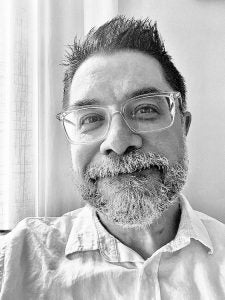
Christopher T. Bavitz
Managing Director, Cyberlaw Clinic; Clinical Professor of Law and Vice Dean for Experiential and Clinical Education
1557 Massachusetts Ave, 4th Floor
Cambridge, MA 02138
Christopher T. Bavitz is the WilmerHale Clinical Professor of Law at Harvard Law School and the Law Schools Vice Dean for Experiential and Clinical Education. He is also Managing Director of HLS’s Cyberlaw Clinic, based at the Berkman Klein Center for Internet & Society. And, he is a Faculty Co-Director of the Berkman Klein Center. Chris teaches the Counseling and Legal Strategy in the Digital Age and Music & Digital Media seminars, and he concentrates his practice activities on intellectual property and media law (particularly in the areas of music, entertainment, and technology). He oversees many of the Cyberlaw Clinic’s projects relating to copyright, speech, advising of startups, and the use of technology to support access to justice, and he serves as the HLS Dean’s Designate to Harvard’s Innovation Lab. Chris’s research and related work at the Berkman Klein Center addresses intermediary liability and online content takedown regimes as well as regulatory, ethical, and governance issues associated with technologies that incorporate algorithms, machine learning, and artificial intelligence. Prior to joining the Clinic in 2008, Chris served as Senior Director of Legal Affairs for EMI Music North America. From 1998-2002, Chris was a litigation associate at Sonnenschein Nath & Rosenthal and RubinBaum LLP / Rubin Baum Levin Constant & Friedman, where he focused on copyright and trademark matters. Chris received his B.A., cum laude, and Certificate in Peace and Justice Studies from Tufts University in 1995 and his J.D. from University of Michigan Law School in 1998.
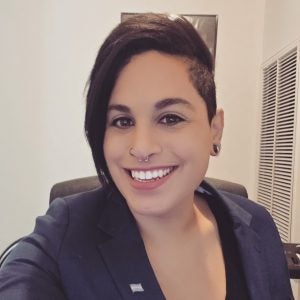
Alejandra Caraballo
Clinical Instructor
1557 Massachusetts Ave, 4th Floor
Cambridge, MA 02138
Alejandra Caraballo is a Clinical Instructor at Harvard Law School’s Cyberlaw Clinic. Prior to joining the clinic, Alejandra was a staff attorney at the Transgender Legal Defense and Education Fund and a Staff Attorney at the LGBTQ Law Project at New York Legal Assistance Group. Alejandra’s professional focus has been on advancing the civil rights of LGBTQ people in a variety of civil legal contexts such as healthcare access, immigration, and family law. Alejandra received her J.D. from Brooklyn Law School where she concentrated in IP and Media Law. She received her B.A. in Government and World Affairs with a minor in Chemistry at the University of Tampa. Alejandra previously served as the Secretary of the LGBTQ Rights Committee of the New York City Bar Association and was appointed as the first openly trans community board member in Brooklyn. Alejandra’s areas of interests include the intersection of technology and disability rights, sex worker advocacy, and the implications of quantum computing on encryption. In her spare time, she can be found playing guitar, building computers, creating electronic music, and brewing beer.
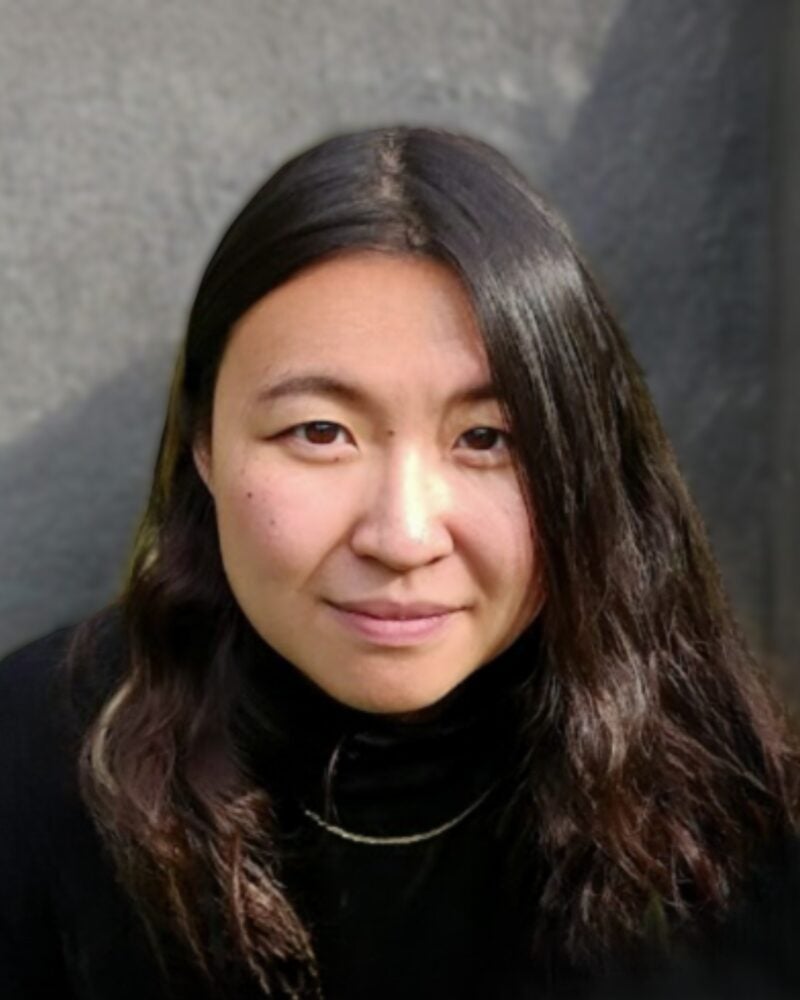
Wendy Chu
Clinical Instructor
Wendy Chu is a Clinical Instructor at the Harvard Law School Cyberlaw Clinic. Her areas of interest include intellectual property, privacy, media law, and nonprofit and startup counseling.
Prior to joining the Clinic, Wendy was a technology transactions associate at Morrison Foerster, where she advised on a broad range of technology, intellectual property, internet law, media law, and commercial issues. Wendy received her J.D. from Harvard Law School and her B.S. in economics and political science from Northeastern University. She is a member of the Leadership Council at the Chinese-American Planning Council, the nation’s largest Asian American social services organization.
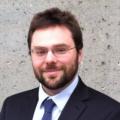
Mason Kortz
Clinical Instructor
1557 Massachusetts Ave, 4th Floor
Cambridge, MA 02138
Mason Kortz is a Clinical Instructor at the Harvard Law School Cyberlaw Clinic, part of the Berkman Klein Center for Internet & Society. His areas of interest include online speech and privacy and the use of data products (big or small) to advance social justice. Mason has worked as a data manager for the Scripps Institution of Oceanography, a legal fellow in the Technology for Liberty Project at the American Civil Liberties Union of Massachusetts, and a clerk in the District of Massachusetts. He has a JD from Harvard Law School and a BA in Computer Science and Philosophy from Dartmouth College. In his spare time, he enjoys cooking, reading, and game design.
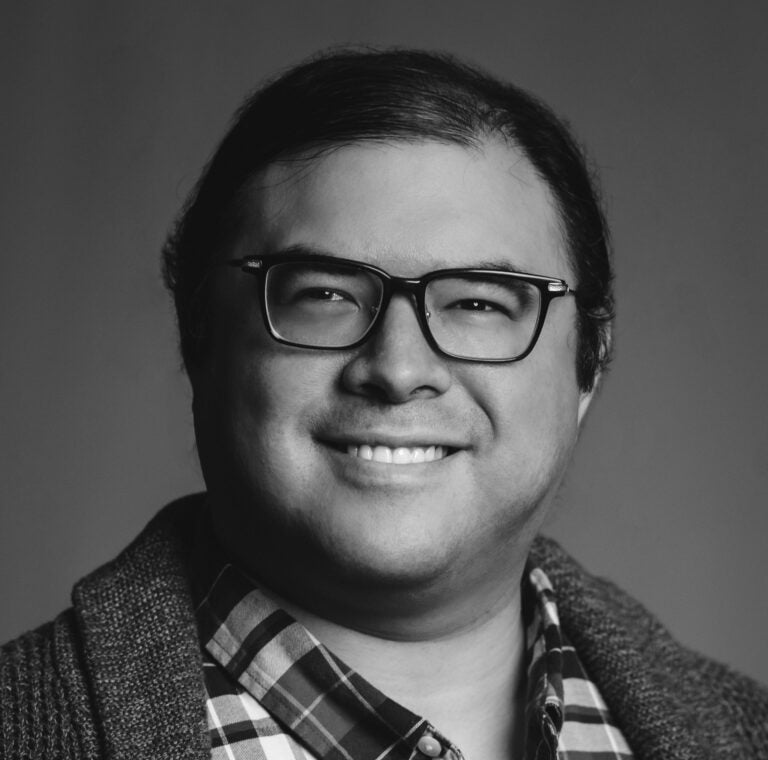
Michael Rosenbloom
Clinical Instructor
Michael Rosenbloom is a Clinical Instructor with the Harvard Law School Cyberlaw Clinic. Prior to joining the clinic, Michael was the Teaching Fellow for the LL.M. Program in Law, Science and Technology at Stanford Law School, Clinical Teaching Fellow at Georgetown University Law Center’s Communications and Technology Law Clinic, and Legal Fellow at the Electronic Frontier Foundation.
Michael’s areas of legal focus lie on the intersections between design, policy, and human behavior online, particularly in the realms of speech, privacy, and platform regulation.
Michael earned a BS in Science, Technology, and Society at Stanford University, an MSc in Social Science of the Internet at the Oxford Internet Institute, a JD from Columbia Law School, and an LL.M in Advocacy through Georgetown Law.
| Morning | Afternoon | Evening |
| 9:30-10 am Settle in for weekly office hours in Cyberlaw’s comfortable new Lewis Law Center office space; enjoy a coffee and snack and catch up with fellow students
10-10:30 am Hold weekly supervisory meeting with assigned clinical instructor to reflect on learnings and confirm next steps
10:30-12:30 pm Review supervisor’s comments on client memo outline and begin work on first draft of memo
|
12:30 pm Head upstairs to a lunch event at the Berkman Klein Center, which provides some new research avenues for the client memo
1:30 – 2 pm: Draft agenda for client intake meeting, identifying what questions need to be answered for the clinic to determine if representation is appropriate; share on Teams for feedback
3:45 – 4:30 pm: Have Zoom intake meeting with supervisor, new student partner, and potential client |
7:30-9 pm Self-scheduled research/drafting time on memo; send student partner a Teams message with an update on new ideas from the lunch event and revised timeline |
Staff Members
| Armelle Bernard | Program Administrator | abernard@law.harvard.edu |
In the News
-
Intern at the Cyberlaw Clinic this Summer!
Apply through our form here! The Cyberlaw Clinic is hiring summer interns for 2026! Current U.S. JD candidates with an interest in the intersection of tech, law, and social justice are […]
December 16, 2025
-
Clinic Submits Amicus Brief in SJC Pretext Stop Case
Earlier this month, the Cyberlaw Clinic filed an amicus brief before the Supreme Judicial Court of Massachusetts (“SJC”) in Commonwealth v. Arias (SJC-13816). The Clinic represented Professor Mailyn Fidler and […]
November 19, 2025
-
Clinic Represents EPIC in Election Deepfake Case
The Cyberlaw Clinic recently filed an amicus brief before the Eastern District of California in Kohls v. Bonta (2:24-cv-02527). The Clinic represented the Electronic Privacy Information Center (EPIC). The brief […]
May 1, 2025
-
Clinic Represents Advocates and Researchers in Follow-Up to Social Media Surveillance Case
This week, the Cyberlaw Clinic filed an amicus brief before the Supreme Judicial Court of Massachusetts (“SJC”) in Commonwealth v. Rodriguez (SJC-13727). The Clinic represented the Innocence Project, the Center […]
April 18, 2025